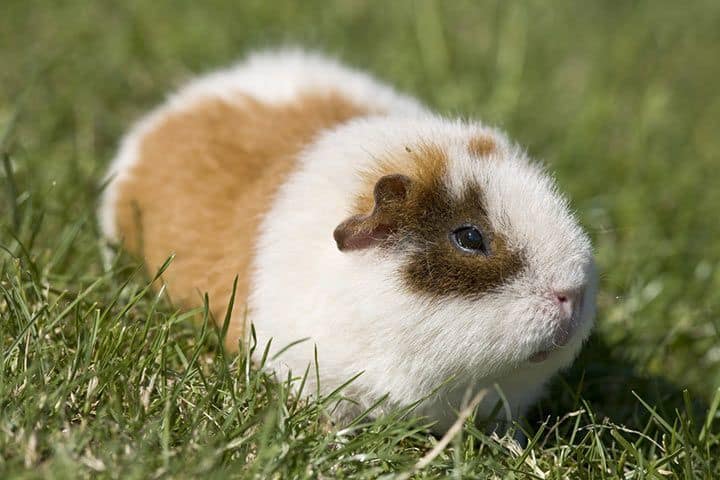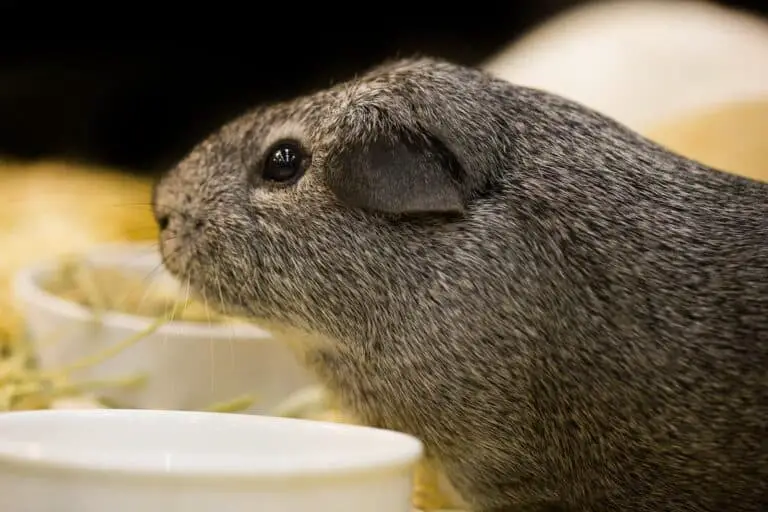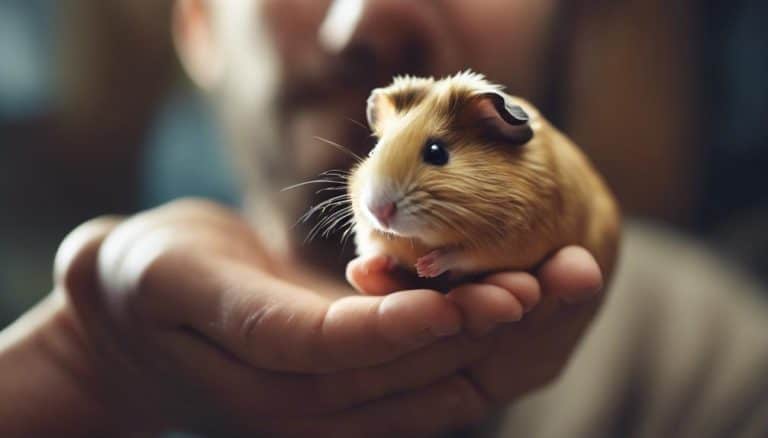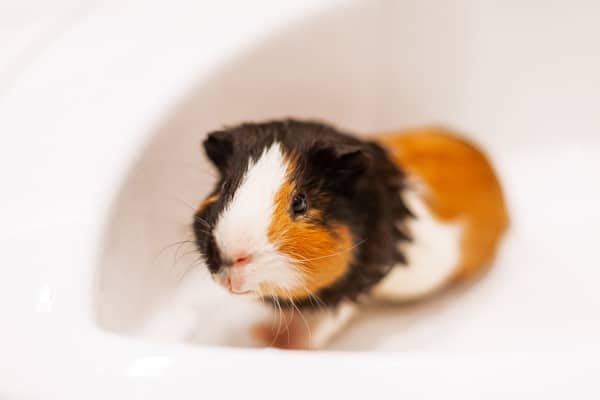Do Guinea Pigs Wake You up at Night
We’ve all wondered – do guinea pigs wake you up at night? Many pet owners ponder this as they seek peaceful slumber.
Our furry friends, thankfully, typically tend to be quiet during the night. Guinea pigs are not nocturnal, nor do they follow a strict sleep schedule. They may be more active in the evening, but with a cozy habitat and minimal disturbances, they shouldn’t disrupt our rest.
Nocturnal or Diurnal: Guinea Pig Sleep Patterns
When do guinea pigs typically exhibit their most active behaviors?
Guinea pigs aren’t strictly nocturnal or diurnal; they’re most active during the twilight hours, at dawn and dusk. They’ve a unique sleep pattern, often napping intermittently throughout the day and night. As prey animals, guinea pigs have adapted to remain alert for potential threats, even while resting. They prefer to sleep in dark, secure places, which mimics their natural habitat and helps them feel safe. Providing hiding spots like hay piles or tunnels can encourage longer naps.
Guinea pigs are most active when the temperatures are just right and potential predators are less likely to be prowling. Understanding their sleep patterns is crucial for ensuring their well-being and allowing them the freedom to be active when they feel safest.
Understanding Guinea Pig Sleep Behavior
Understanding the intricacies of guinea pig sleep behavior is essential for providing optimal care and ensuring their well-being. Guinea pigs aren’t strictly nocturnal or diurnal; instead, they’re crepuscular, meaning they’re most active during dawn and dusk. Their sleep habits are influenced by their natural habitat and the need to be alert to potential predators.
They take short power naps throughout the day and night, with their eyes wide open as a survival instinct. To make sure guinea pigs get enough sleep, it’s important to provide a dark and cozy sleeping environment, such as hiding spots and tunnels, which promotes longer naps and helps them feel safe.
Typically, guinea pigs need between four and six hours of sleep a day, with older guinea pigs or those in a routine resting for longer periods. Understanding their sleep behavior is crucial for ensuring their well-being.
Factors Influencing Guinea Pig Sleep
Guinea pigs are influenced by their natural habitat and predator awareness, which shapes their sleep patterns. They prefer to sleep with their eyes open and seek dark, sheltered spots to feel safe. They need between four and six hours of sleep a day, often with older ones resting for up to 30 minutes at a time.
Guinea pigs tend to follow a specific sleep schedule, being most active when temperatures are right and potential predators are asleep. They’re social creatures, displaying bursts of activity followed by rest periods. Therefore, providing hiding spots and maintaining an ideal temperature of 17-20°C encourages longer naps for guinea pigs, allowing them the freedom to rest comfortably.
Tips for Managing Guinea Pig Nocturnal Activities
As guinea pigs are most active during the night, we’ve found that establishing a consistent nighttime routine can help manage their nocturnal activities. Providing hiding spots like piles of hay, nest boxes, or tunnels can encourage longer naps in a dark environment.
Maintaining a consistent sleeping environment with temperatures between 17-20°C is crucial to prevent health issues. Using fleece bedding for comfort and regularly checking and cleaning it ensures a comfortable sleeping environment.
Interacting with guinea pigs during the day aligns their activity cycle with ours, and ensuring a dark and quiet room at night is essential for their comfort. Establishing a nighttime snack routine with fresh hay and quiet veggies can keep guinea pigs occupied and help create a nighttime routine.
Additionally, piggy parents can check a video for a quick look at their guinea pigs at night to ensure something is wrong, allowing them to get their necessary six hours of sleep each night.
Creating a Sleep-Friendly Environment for Guinea Pigs
At times, guinea pigs may require a sleep-friendly environment to ensure their well-being and comfort during the night. To create an ideal sleep environment for guinea pigs, consider the following:
- Dark Hiding Spots: Provide tunnels or nest boxes for longer naps, mimicking their natural habitat.
- Maintain Ideal Temperature: Ensure the cage is at 17-20°C to prevent health issues during colder months.
- Comfortable Bedding: Use fleece bedding, hay, and regular spot checks to ensure a clean and comfortable sleep environment.
By offering these provisions, guinea pigs can have a peaceful and healthy sleep during their active periods.
Additionally, using products like the GuineaDad Liner can help maintain clean and cozy surroundings, promoting better sleep for your furry companions.
Conclusion
In conclusion, guinea pigs aren’t typically nocturnal animals and don’t intentionally wake their owners up at night. Understanding their sleep patterns and providing a comfortable sleeping environment can help manage their nocturnal activities.
By taking these factors into consideration, guinea pig owners can ensure a peaceful coexistence with their furry friends without any disruptions to their own sleep.







